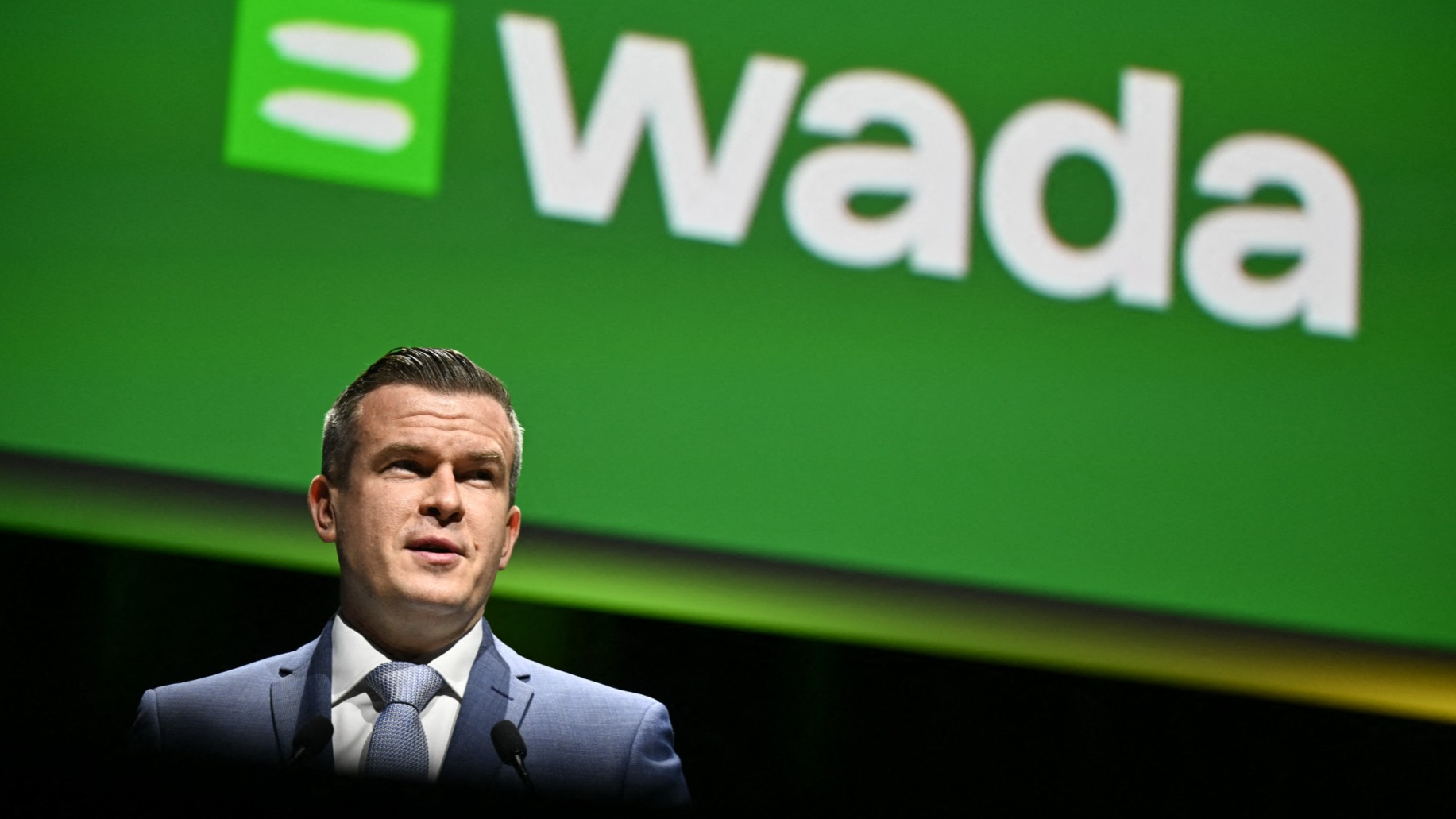
GUANGZHOU - Senior officials from the World Anti-Doping Agency (WADA) lauded China's commitment to anti-doping education and emphasized the importance of global collaboration in the fight for clean sport during their visit to the country's 15th National Games.
WADA President Witold Banka, Vice President Yang Yang, and Director General Olivier Niggli made the comments in an exclusive interview with Xinhua on Monday after a tour of the Guangdong Anti-Doping Education and Science Base, a key stop on their itinerary for the Games.
"The base is amazing. It's very important to educate the athletes," said Banka. "It's a nice place where you can find all the necessary information about anti-doping. Anti-doping is very complicated quite often for the athletes, for coaches, and especially for the young athletes. So it's extremely important for us as anti-doping global regulator to promote education."
"I like it because it's very practical," Niggli shared this enthusiasm, noting the practical value of the facility. "I think for athletes to come here, they can make the link with their day-to-day life and what they buy at the grocery, or what are the dangers surrounding them every day."
ALSO READ: WADA condemns US bill threatening funding over governance demands
The visit to the base, one of the best among 24 such facilities across China known for its scale and formal exhibitions, underscores China's "prevention first, education as the foundation" principle, which has gained increasing international recognition.
"Anti-doping is all about collaboration, so we altogether have to collaborate for clean sport," Banka said, highlighting the role of work with governments, including China. "With the Chinese government, we aim to increase our efforts together to make sure the system is working better."
Niggli cited a major WADA Intelligence and Investigations project now expanding into Asia. "We count on full collaboration from Chinese authorities on going after traffickers and those who are actually producing prohibited substances. That's very important," he said.
Banka said the project succeeded in Europe, leading to the confiscation of "800 million doses of illegal steroids" and the closure of "more than 60 illegal laboratories." He outlined a plan to extend this law enforcement network to all continents by 2029.
Looking ahead, the officials discussed the upcoming World Conference on Doping in Sport in South Korea in December, where key themes will include how to incorporate more human rights into the code, better protect minor athletes, and ensure independence in testing.
READ MORE: China's anti-doping agency issues guidelines to protect rights of underage athletes
Reflecting on his tenure, Banka identified the "politicization of anti-doping" as a major challenge. "We see more and more attacks on the decisions made by WADA or our experts where some people try to use it as a tool against WADA," he said, citing the recent case involving 23 Chinese swimmers. "We regret it because it is not a good example of collaboration when you are using technical decision to politicize anti-doping."
Despite the challenges, Banka expressed pride in WADA's progress, particularly in establishing anti-doping education system and setting up an international standard to regulate the work around the world. "We try to re-balance the system, not only catch and punish, but (also) prevent and support. So education is fundamental as a pillar of our anti-doping policy."
Banka and his delegation are scheduled to meet students at Guangzhou Sport University, Hong Kong Baptist University and Macao Polytechnic University to promote anti-doping values.
"We will engage in dialogue with students in these three cities. The future of anti-doping work requires young people to speak out," said Yang.


